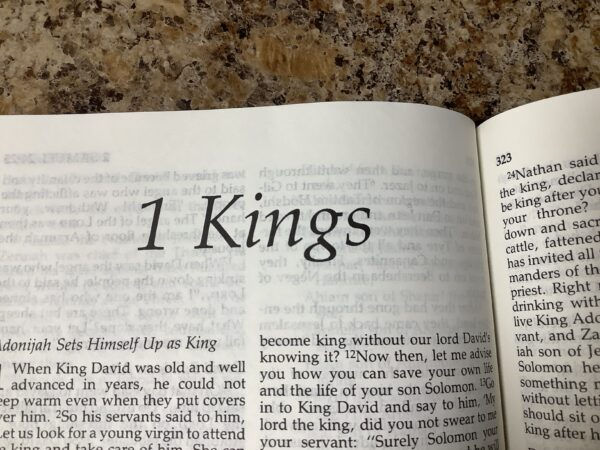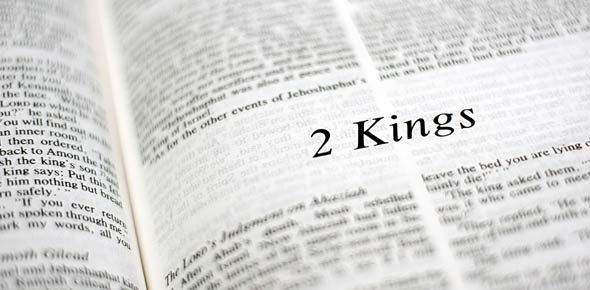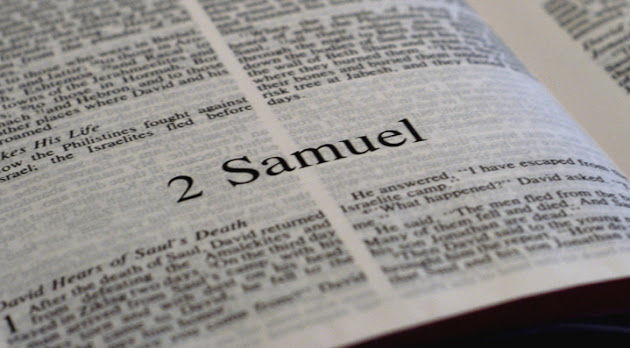1 Kings Summary: Splendor, Sin, and the Slow Fall of a Nation
- Bible Believing Christian

- Aug 7, 2025
- 6 min read

1 Kings Summary: Splendor, Sin, and the Slow Fall of a Nation
Intro for Beginners
1 Kings begins with the height of Israel’s glory—and ends with the nation fractured in half. What starts in wisdom, wealth, and worship ends in war, idolatry, and rebellion. This book shows us what happens when a nation builds a house for God—but then abandons the God of the house.
The first half centers on King Solomon, son of David. He’s wise, rich, and blessed by God—until he’s not. The second half introduces a series of kings, prophets, and political chaos, with the prophet Elijah standing out as a bold voice in a spiritually collapsing culture.
This is not just history—it’s a warning. When even God’s chosen people compromise, judgment isn’t far behind. But even in the darkest moments, God is still raising up voices who won’t bow to idols.
Etymology & Background
Hebrew Title: מְלָכִים א (Melakhim Aleph) — “Kings 1”
Greek (LXX): Βασιλειῶν Γʹ (Basileiōn Gamma) — “3 Kingdoms”
In the Septuagint, 1 and 2 Samuel are called 1 & 2 Kingdoms, and 1 and 2 Kings are 3 & 4 Kingdoms. It’s all one seamless royal history in the Greek tradition.
1 Kings was originally part of a single scroll with 2 Kings. It was split for readability in later manuscripts. The book picks up immediately after David’s final days and covers around 120 years, from Solomon’s rise to the death of King Ahab.
Chapter Movements & Key Moments
Chapters 1–2: Solomon Becomes King
David is near death. His son Adonijah tries to take the throne, but Bathsheba and the prophet Nathan intervene. David appoints Solomon, and Adonijah backs down—temporarily.
“Solomon became king and sat on the throne of David his father, and his kingdom was firmly established.” (1 Kings 2:12, NLT)
Solomon consolidates power, deals with rivals, and begins his reign in strength.
Chapters 3–4: Wisdom and Administration
God appears to Solomon in a dream and offers him anything. Solomon doesn’t ask for wealth or power, but wisdom.
“Give me an understanding heart so that I can govern your people well…” (1 Kings 3:9, NLT)
God gives him wisdom—and everything else too. He demonstrates this wisdom when two women come to him fighting over a child. Solomon’s ruling reveals who the true mother is. His fame begins to spread.
Chapters 5–8: Building and Dedicating the Temple
Solomon builds the Temple in Jerusalem—the permanent structure to house the Ark and host the presence of God.
“I have built this Temple to honor the name of the Lord, the God of Israel.” (1 Kings 8:20, NLT)
He dedicates it with sacrifices and prayer. The glory of the Lord fills the Temple. This moment parallels the Tabernacle in Exodus. The physical presence of God descends again—but this time, it’s tied to a location, not a tent.
Chapters 9–10: Solomon’s Peak and the Visit of the Queen of Sheba
God reaffirms His covenant with Solomon—but includes a warning: If you or your descendants turn from Me, the temple will become a ruin.
“But if you or your descendants abandon me... then I will destroy this Temple...” (1 Kings 9:6–7, NLT)
Solomon amasses wealth, builds fleets, and hosts the Queen of Sheba, who praises his wisdom and prosperity. But the cracks are beginning to show.
Chapter 11: Solomon’s Fall and the Kingdom’s Division
Despite all God gave him, Solomon compromises. He marries hundreds of foreign wives and builds altars to their gods.
“The Lord was very angry with Solomon, for his heart had turned away from the Lord…” (1 Kings 11:9, NLT)
God promises to tear the kingdom in two—but not during Solomon’s lifetime, for David’s sake. Solomon dies, and his son Rehoboam takes the throne.
Chapters 12–14: The Kingdom Splits
Rehoboam ignores wise counsel, imposes harsh labor, and ten tribes rebel.They follow Jeroboam, and the kingdom divides:
Judah (and Benjamin) under Rehoboam
Israel (the ten northern tribes) under Jeroboam
Jeroboam sets up golden calves in Bethel and Dan, starting a counterfeit worship system.
“It is too much trouble for you to worship in Jerusalem… Look, Israel, these are the gods who brought you out of Egypt!” (1 Kings 12:28, NLT)
This false religion would plague the northern kingdom until its destruction.
Chapters 15–16: A Parade of Corrupt Kings
In the north, king after king does evil in the sight of the Lord.Names like Nadab, Baasha, Elah, Zimri, and Omri rise and fall—some reigning for mere days. In Judah, Asa stands out as a godly king.
Oddity: Zimri reigns for 7 days before setting the palace on fire—with himself inside.
Chapters 17–19: Elijah vs. Ahab and the Prophets of Baal
The prophet Elijah bursts onto the scene during the reign of Ahab—the most wicked king yet.
Elijah declares a drought.
Is fed by ravens.
Raises a widow’s son.
And then calls down fire from heaven on Mount Carmel.
“Answer me so these people will know that you, O Lord, are God…” (1 Kings 18:37, NLT)
Fire falls, the people repent—briefly. Jezebel threatens Elijah, and he flees into depression.
“I have had enough, Lord… Take my life…” (1 Kings 19:4, NLT)
God appears to him not in fire or earthquake, but a gentle whisper.
Chapters 20–22: Ahab’s Wars and Downfall
Ahab goes to war with Syria and wins—but continues in wickedness. He desires Naboth’s vineyard, and Jezebel arranges Naboth’s murder so Ahab can steal it. Elijah delivers judgment.
“Have you not murdered a man and seized his property?” (1 Kings 21:19, NLT)
Ahab later disguises himself in battle, but is struck by a random arrow and dies.
Conclusion & Bridge to Jesus
1 Kings is a rollercoaster—of wisdom and idolatry, splendor and collapse. The golden age under Solomon turned to tarnish. The divided kingdom led to divided hearts. The temple that shone with God’s glory was already on the path to destruction. But woven through the ruins is a whisper of hope: God isn’t done speaking. And He isn’t done redeeming. The Son of David is still coming. And unlike Solomon, He won’t just build a temple—He will be the temple.
How 1 Kings Points to Jesus (with New Testament Fulfillments)
1. Solomon’s Wisdom → Christ, the Wisdom of God
“But someone greater than Solomon is here!” (Matthew 12:42, NLT)
Jesus is wisdom incarnate—greater than Israel’s wisest king.
2. The Temple → Jesus, the New Temple
“Destroy this temple, and in three days I will raise it up.” (John 2:19, NLT)
The physical temple eventually fell. Jesus' body—God’s presence in flesh—rose again.
3. Divided Kingdom → Christ Unites Jew and Gentile
“He made peace between Jews and Gentiles by creating in himself one new people…” (Ephesians 2:15, NLT)
Where kings divided, Christ unifies.
4. Elijah the Prophet → John the Baptist Foreshadows Jesus
“Elijah is indeed coming first to get everything ready.” (Mark 9:12, NLT)
Jesus fulfills the message Elijah preached: repent, return, and believe.
Application – What Should We Do With This?
1. Don’t Let Prosperity Lead to Pride
Solomon fell not in war but in success. Prosperity without obedience leads to idolatry.
2. Worship the Real God, Not Convenient Substitutes
Jeroboam made worship “easier” and more accessible. But false worship always costs more in the end.
3. Boldly Speak Truth, Even to Power
Elijah stood alone on Mount Carmel—and God stood with him. In an idolatrous culture, speak with clarity and courage.
4. Listen for the Whisper
God doesn’t just show up in fire and thunder. He often speaks in stillness. Slow down enough to hear Him.
5. Let Jesus Be Your King and Temple
Kings will fail. Temples will fall. But Jesus is the King who never fails and the Temple that never crumbles. Don’t settle for golden calves when the Son of God is still calling.


